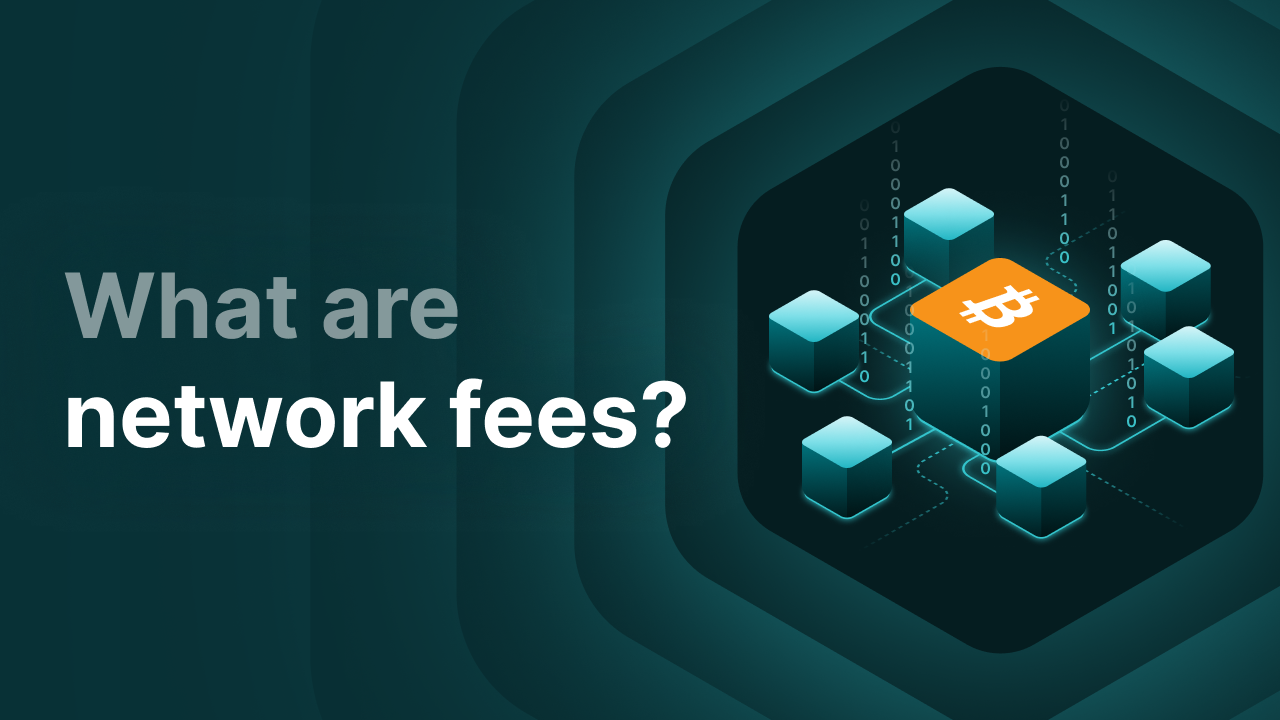What are Network Fees? Understanding the Costs in Cryptocurrency Transfers

In the world of cryptocurrency, network fees are a crucial component that can significantly impact the cost and speed of transactions. Whether you're a seasoned crypto enthusiast or a newcomer, understanding network fees is essential for making informed decisions and optimizing your transactions. In this article, we'll explore network fees, why they exist, and how they affect your crypto trading.
Key Takeaways
- Network fees are charges imposed on transactions that take place on a blockchain network.
- During times of high demand, such as market surges or popular token launches, fees can rise significantly.
- Network fees are outside of our control, as they are determined by the blockchain networks themselves. We charge a 0,15% flat fee per trade.
What are Network Fees?
Network fees, sometimes referred to as transaction fees, miner fees, blockchain fees or gas fees are charges imposed on transactions that take place on a blockchain network. These fees are paid to the network's validators or miners, who process and confirm transactions. Network fees ensure that transactions are prioritized and included in the blockchain in a timely manner.
Why do Network Fees Exist?
Network fees exist for several reasons:
Incentivizing Miners and Validators: Miners and validators invest significant computational power and energy to secure the network and process transactions. Network fees provide them with a financial incentive to continue their work.
Preventing Spam: By imposing a cost on transactions, blockchain fees help to prevent spam and malicious activities. Without fees, an attacker could flood the network with numerous transactions, causing congestion and slowing down legitimate transactions.
Regulating Network Congestion: When the network experiences high traffic, fees increase to ensure that only transactions with the highest fees are processed quickly. This mechanism helps manage congestion and maintain the network's efficiency.
How are Blockchain Fees Determined?
Network fees are determined by several factors, including:
Transaction Size: Larger transactions that contain more data typically require higher fees because they consume more space on the blockchain.
Network Demand: During times of high demand, such as market surges or popular token launches, gas fees can rise significantly. Users competing to have their transactions processed quickly will offer higher fees.
Blockchain Protocol: Different blockchains have varying fee structures and mechanisms. For instance, Bitcoin and Ethereum use different algorithms to calculate blockchain fees, leading to variations in cost.
Network Fees in Crypto Transactions
When discussing network fees in the context of cryptocurrency, it's essential to recognize that these fees can vary widely between different cryptocurrencies and blockchain networks.
Bitcoin Network Fees
Bitcoin, the first and most well-known cryptocurrency, uses a proof-of-work mechanism to secure its network. Bitcoin network fees can fluctuate significantly, especially during periods of high transaction volume. Users often have the option to set their fees, with higher fees resulting in faster transaction confirmations.
Ethereum Gas Fees
Ethereum, known for its smart contract capabilities, uses a proof-of-stake system. Ethereum network fees, often referred to as "gas fees," can be quite volatile. Gas fees are influenced by the complexity of the transaction and the level of network congestion.
Reducing Crypto Network Fees
For users looking to minimize crypto network fees, there are several strategies:
-
Timing Transactions: Conducting transactions during off-peak hours can help reduce gas fees. Network activity tends to be lower during weekends or late nights, potentially resulting in lower fees.
-
Batching Transactions: Combining multiple transactions into one can lower the overall cost per transaction. This method is especially useful for businesses or individuals who need to send payments to multiple recipients.
-
Using Layer 2 Solutions: Layer 2 solutions, such as the Lightning Network for Bitcoin or rollups for Ethereum, help reduce blockchain fees by processing transactions off the main blockchain and then settling them in bulk.
-
Exploring Alternative Blockchains: Some newer blockchains offer lower fees and faster transaction times. For instance, Solana is known for its lower transaction costs compared to Bitcoin and Ethereum.
Finst Fees
At Finst, we strive to offer a transparent and cost-effective trading experience. It's important to note that network fees are outside of our control, as they are determined by the blockchain networks themselves. We charge a 0,15% flat fee per trade and any fees you may encounter when trading crypto are clearly shown for every transaction on our platform. This means that while network fees may vary depending on the blockchain and current demand, our trading fee remains consistent, helping you better manage your transaction costs.
Conclusion
Network fees are an integral part of the cryptocurrency ecosystem, serving to incentivize miners, prevent spam, and regulate network congestion. By understanding how network fees work and the factors that influence them, you can make more informed decisions and optimize your crypto transactions. Whether you're navigating Bitcoin network fees, Ethereum gas fees, or exploring alternative blockchains, being aware of these costs will help you manage your investments more effectively.
By staying informed and employing strategies to minimize fees, you can enhance your experience in the dynamic and ever-evolving world of cryptocurrency.
